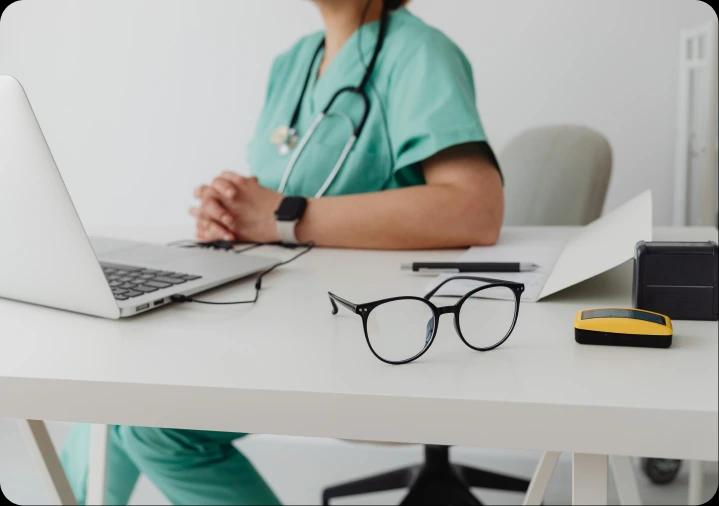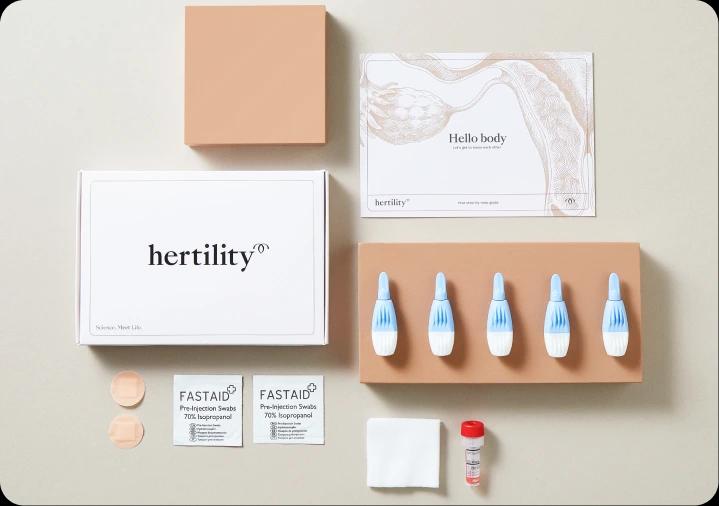
Speak to a Menopause Specialist
Experiencing symptoms that may be related to menopause or perimenopause? Our Menopause Specialists are trained in prescribing HRT for women who are experiencing symptoms of menopause or perimenopause. Get bespoke support as you navigate menopause.
Fast access to appointments
Online consultations
HRT prescriptions
Follow up care
Book a Menopause Consultation with Hertility
Menopause Specialist consultation - Advanced Nurse Prescriber
In-depth, personalised advice and expert guidance from menopause specialists, including detailed next steps which may include HRT prescriptions.
What is included:
Expert guidance on navigating menopause treatments
Personal symptom management advice
In-depth information on potential next steps including nutrition advice
Non-judgemental, compassionate emotional support
Menopause Specialist consultation - Doctor
In-depth, personalised advice and expert guidance from menopause specialists, including detailed next steps which may include HRT prescriptions.
What is included:
Expert guidance on complex questions and concerns such as unexplained pelvic pain or past history of gynaecological cancers
Personal symptom management advice
Specialist referrals
Non-judgemental, compassionate emotional support
Meet our Menopause team
Specialising in supporting individuals with guidance on perimenopause and menopause symptoms and treatments. No matter where you’re at, we’re here to help you.
They can help you with:
- Expert guidance on navigating the menopause journey
- In-depth information on HRT and other treatments, such as nutrition
- Symptom management advice
- Non-judgemental, private menopause related emotional support

Dr Stacey Bryan
BSC MBBS MRCOG MD
Consultant GynaecologistGynaecology Cancer SurgeonDr. Bryan has been trained in the surgical management of all gynaecological cancers. She has experience working with women who are perimenopausal and menopausal and prescribing HRT and lifestyle advice to improve symptoms.

Alison Anderson
RGN BSC(Hons)
Menopause SpecialistAlison is an Advanced Nurse Practitioner with 46 years of experience in Health Care. She became an Advanced Nurse Practitioner and nurse prescriber in 2005. She is a member of the British and International Menopause Society and the Primary Care Women’s Health Forum. She currently also currently works within a GP surgery, advising on many aspects of health care and championing menopause health and well-being.
Why book a Menopause Specialist Consultation?
Menopause symptoms can be disruptive and uncomfortable, and they can interfere with a person’s daily life.
Even with an HRT prescription, you might need this to be reviewed as your body experiences further change. We are here to help you.
Read more about HRTLearn more about what support exists and how you can create a long-term support plan with the Hertility team every step of the way.
What happens in your appointment?
Prior to your session, you’ll complete a comprehensive online health assessment so we can tailor the call to your needs. You can chat to our Menopause Specialist about anything related to your menopause symptoms or hormonal health—no two calls are the same and it’s totally up to you what you discuss. At the end of the call, you will have next steps in place, whether that’s a suggestion of further services or an HRT prescription.

Initial appointment with a Specialist
A 45 minute review of your online health assessment and symptoms, complete with next steps. This is a crucial time to share your thoughts, concerns and experiences with menopause symptoms to help build any additional steps and follow-ups that may be required.

Next steps and follow ups
The next steps are an important part of the journey. It is likely that your specialist call will uncover options that will help you understand where you are with menopause.
This could include:
- A blood test (from £59)
- A nutrition consultation (from £99)
Got questions?
What is menopause?
+What is perimenopause?
+What are the symptoms of menopause?
+How long does menopause last?
+What age does menopause start?
+How much does it cost?
+I’ve changed my mind, what are my refund options?
+How do I get my prescription? Can I track my order?
+There’s an issue with my order. Who do I contact?
+I can't make my call, how can I reschedule?
+Can I use my health insurance to cover the cost of the consultation?
+Do I need a GP Referral?
+Can I share my GP notes ahead of the call?
+

